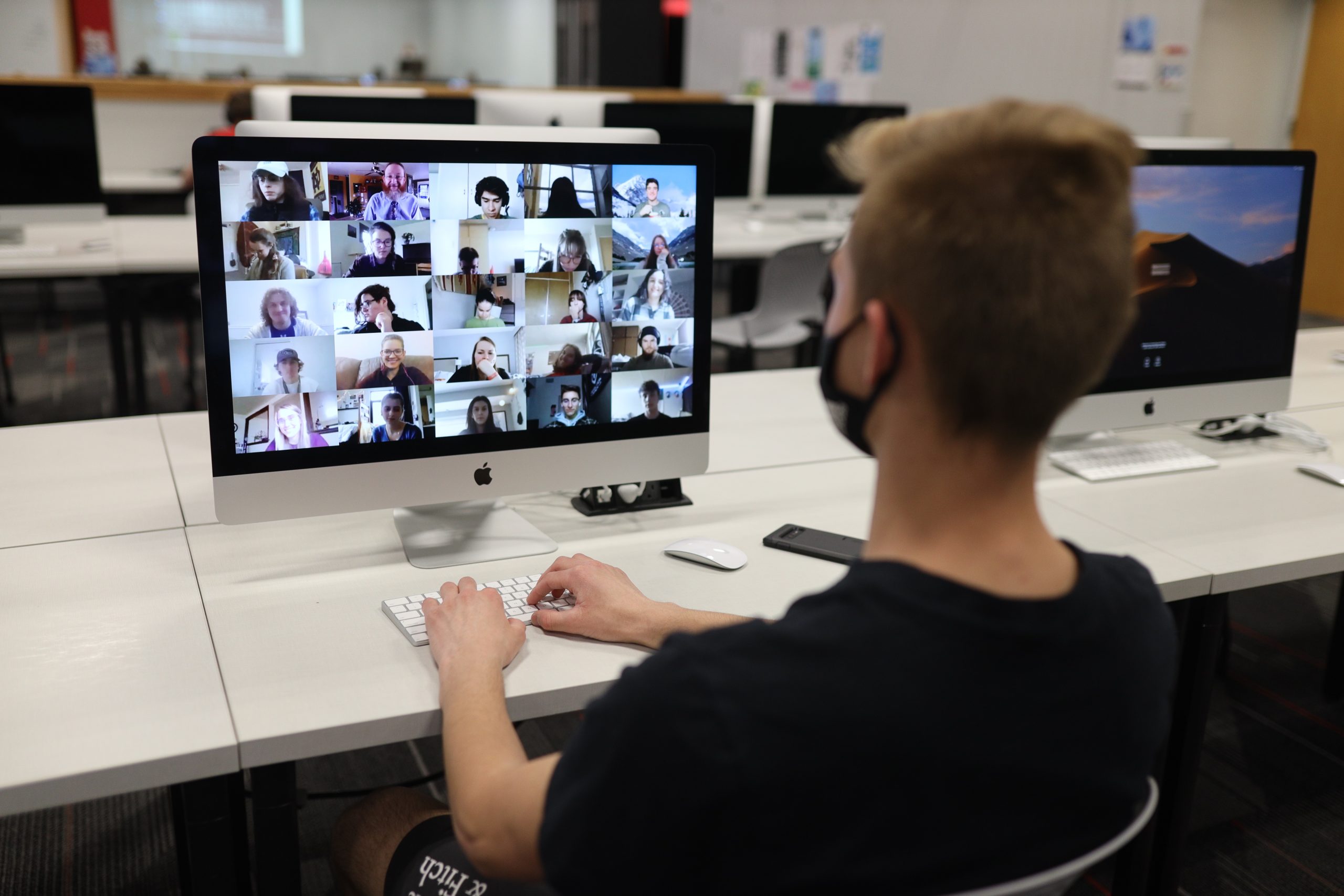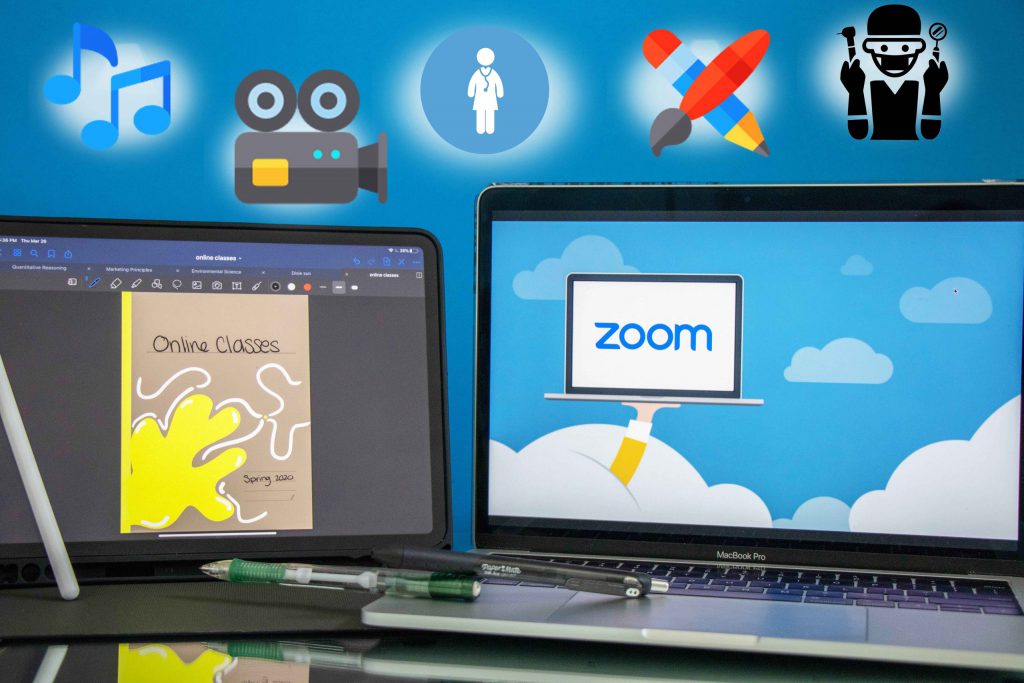The pandemic that struck the world just over a year ago has left a lingering impact on the system of higher education.
Although the Dixie State University administration does not believe remote learning is particularly effective, online learning is still going to continue to expand.
In 2018, about 35% of U.S. undergraduate students took a distance-education course, but the pandemic raised that figure to nearly 100% in 2020, according to a McKinsey & Company October report.
Michael Lacourse, provost and vice president of academic affairs, said there will be a growth for online learning and it’s not just because of the pandemic. DSU already has a fair number of students learning remotely, which is why it has developed education centers in Kanab, Hurricane and Hildale.
Lacourse said having Zoom as an option has provided higher education with the capacity to return to a remote teaching style if it’s ever needed in the event of another pandemic.
Remote learning is not necessarily detrimental to higher education as a whole, said Mark Bagwell, director of new student and family programs, it’s only detrimental to the students’ learning when it is required like it has been during the pandemic.
“Once we get past the point where online is required, it will increase [remote] access to those who want it,” Bagwell said.
Online and remote learning can be such a benefit to the students who learn best that way, Bagwell said. Those who actively choose to participate in an online format perform just as well as students who take the course in person.
A survey from Third Way and New America evaluated 1,000 students’ attitudes toward higher education during the pandemic and found that students are worried about their job prospects because of what they called “a pandemic degree.”
“Education is education regardless of where it comes from.”
Mark Bagwell, director of new student and family programs.
According to the survey, “55% of college students agree with the statement that ‘higher education is not good quality now that it has moved partially or entirely online.’”
Bagwell said this is a completely valid concern because students should always be conscious of the value of their education.
The pandemic has brought forward a stigma surrounding remote learning, Bagwell said, but students should understand that employers are not going to see online education as less valuable.
“Education is education regardless of where it comes from,” Bagwell said.
If anything, in this generation, employers are looking for students with a plethora of knowledge regarding well-known technology because that is the direction the workforce is heading.
“One of the benefits of everyone being shifted to an online environment is that now you have college students who are graduating that are even more adept to technologies in the workplace,” Bagwell said.
President Richard “Biff” Williams said the pandemic has also brought on greater opportunities to stay connected through technology.
Williams said he has thought about how the option for remote learning can be a vital tool for students who want to attend summer school but have to return to their hometown. A remote option would still allow the capability of taking classes while not being in the same city; however, it has not been explicitly discussed among the administration.
“We can think outside the box a lot more now,” Williams said. “The global pandemic really forced us to have these conversations.”
That said, the DSU administration is highly encouraging the return to a traditional face-to-face classroom setting for the fall 2021 semester, but select professors may still desire to provide a structured hy-flex style for their classes or provide Zoom as an option to students for case-by-case circumstances.
Due to health conditions, professors with health concerns will need to continue teaching entirely remotely.
Lacourse said 70 professors were teaching solely remotely during the fall 2020 semester, but he is hopeful that with the distribution of vaccines that number will be down to single digits for the fall 2021 semester.
Students will be able to request access to class through Zoom in special circumstances, whether it’s because they’re sick, traveling or nontraditional students who need special accommodations.
The university does not plan to implement a protocol for students to follow before the course begins; it will be a conversation that needs to happen between the student and professor based on what their need is and how the professor can accommodate them based on the classroom set-up.
“It seems as though the more traditional learning experiences resonate better with our student population here,” Lacourse said. “Traditional is probably the way of the future for DSU.”




